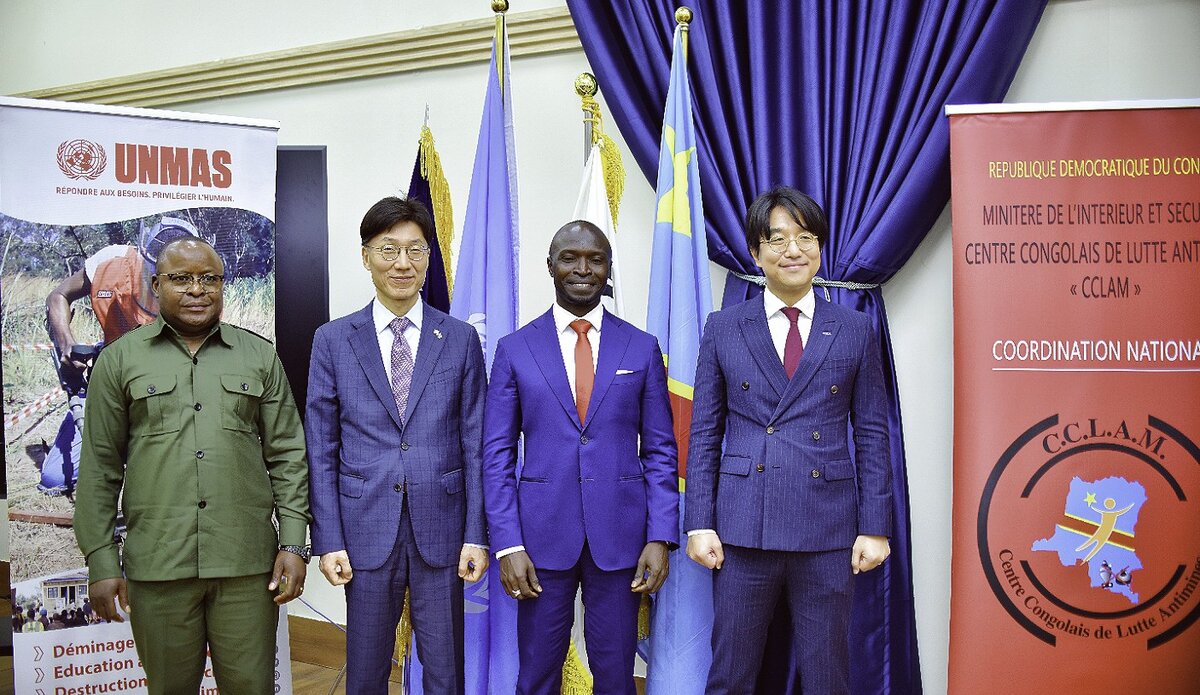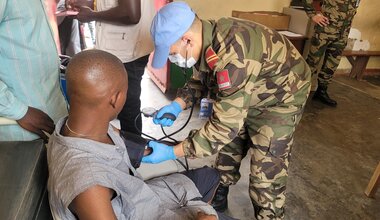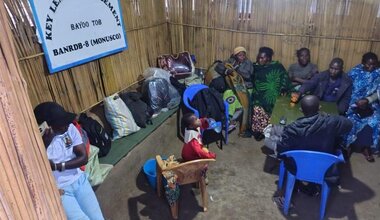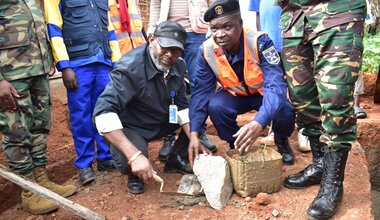Over 400 explosive remnants and 9,000 munitions destroyed. UNMAS, KOICA and CCLMA conclude major demining project
The project "Sustainable Mine Action in Support of Refugees, Internally Displaced Persons and Communities Affected by Conflicts in the Democratic Republic of Congo," funded by the Korea International Cooperation Agency (KOICA) and implemented by the United Nations Mine Action Service (UNMAS) in partnership with the Congolese Mine Action Center (CCLAM) since November 2022, was concluded this Wednesday, August 27, 2025, in Kinshasa.
This project notably enabled the destruction of 450 explosive remnants of war, 9,248 small-caliber munitions, and 36 anti-personnel mines.
This work was praised by CCLAM national coordinator, Emmanuel Lokinu, who welcomed UNMAS assistance as "a dedicated actor."
"UNMAS's presence is so important. Its technical contribution is essential to our work," he stated.
According to him, this project allowed numerous rural communities to resume their agricultural activities that they had abandoned due to risks related to the presence of explosive remnants of war.
"Mines prevent farmers from doing agriculture and children from playing," he emphasized.
In total, 67,865 square meters were manually demined and 330,615 square meters of combat zones were cleared.

For Jean-Denis Larsen, UNMAS program chief in DRC, more than the number of explosive remnants of war destroyed, it's the extent of the decontaminated area that matters.
Suspicions of explosive device presence can keep entire communities away from large expanses of grazing or cultivated land, thus depriving them of their means of subsistence.
"Lives saved"
Present at the closing ceremony, KOICA country director Choi Yonjae was pleased that this project saved human lives.
"Each device defused is one less danger," he noted, recalling that his country also experienced violent episodes that taught its inhabitants the importance of mine action.
Jean-Denis Larsen, for his part, recalled the testimony of an Ituri resident whose field had been decontaminated last year:
"28 mines neutralized means twenty-eight human lives saved and mutilations avoided."
The project, funded by KOICA for $6 million USD, was conducted in three provinces: Ituri, North Kivu, and South Kivu - provinces that have been plagued by armed violence for many decades.
The Ambassador of the Republic of Korea to the Democratic Republic of Congo, Jeong Hong Geun, emphasizes that his country is committed to advancing the fight against mines, a necessary battle to allow entire communities to work without fear and produce for their prosperity.
Community awareness campaigns
"Mines and explosive remnants of war endanger human lives, hinder agricultural development, and prevent the return of displaced persons," recalled Jeong Hong Geun.
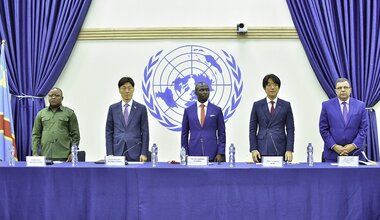
The project also enabled mapping of areas contaminated by explosive remnants of war and mines.
Throughout its implementation, awareness campaigns were also conducted among communities: more than 200,000 women, men, girls, and boys were trained on the dangers of explosive devices, contributing to safer behaviors and risk reduction for vulnerable populations.
24 personnel and 68 agents from national NGOs working in mine action were also trained, thus strengthening local operational capacities.
Agents from the Congolese Mine Action Center (CCLAM) benefited from targeted training on information management.
Finally, a 2025-2027 demining implementation plan following a survey conducted by CCLAM in the provinces of Ituri, North and South Kivu was developed.
 UN
UN United Nations Peacekeeping
United Nations Peacekeeping
